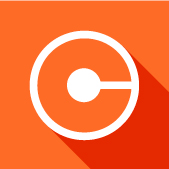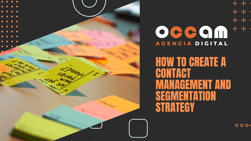Index Content
do you know the best blockchain tools to build a powerful career as a developer?
The blockchain has emerged as one of the most transformative technologies of the last decade, and its journey is not over yet. In fact, it is expected that soon, this technology will transform many more industries.
The rise of this technology has created new professional profiles such as that of the blockchain developer. This person is in charge of developing solutions in the blockchain environment. But for these solutions to be the most effective, the best blockchain development tools are needed.
Today we bring you a list of all these tools to make your routine in this profession much easier.
Blockchain development: what is it?
Blockchain development refers to the creation, maintenance and design of blockchain applications and systems. In general, it is about using the unique features of blockchain technology to solve problems and create opportunities.
A blockchain developer develops decentralised applications (dApps) and smart contracts based on blockchain technology, as well as understanding blockchain architecture and protocols.
There are two different types of blockchain developers; there is the Blockchain Core Developer and the Blockchain Software Developer. Let's call them subdivisions of blockchain development.
- A Blockchain Core Developer designs the security and architecture of the proposed Blockchain system. In essence, the Blockchain Core Developer creates the foundation upon which the Blockchain Software Developer will build.
- A Blockchain Software Developer uses the core architecture built by the Developer to create applications, specifically decentralised applications (dapps) and web varieties.
Responsibilities and tasks of a blockchain developer
There may be situations where the same person plays both roles, most likely in cases where the company is small and people traditionally wear more than one hat. Whatever the case, the day-to-day responsibilities and duties of the Blockchain Developer are:
- Design the Blockchain protocols
- Designing the network architecture that can be used to centralise or decentralise data
- Developing the back-end according to the Blockchain protocols
- Develop front-end designs according to customer requirements
- Develop and oversee any smart contracts
The Blockchain developer's responsibility is to develop innovative solutions to challenging problems, including solutions for command and control and high integrity. The developer also performs complex analysis, design, development, testing and debugging of computer software, specifically for distinct product hardware or technical services lines of business. Developers carry out software design, integration of operational architectures and selection of computer systems. Finally, they operate on multiple systems and apply knowledge of one or more programming platforms and languages.
6 indispensable tools for the blockchain developer
-
Solidity
There is no doubt that one of the most widely used languages by blockchain developers is Solidity. It was created to work with the Ethereum Virtual Machine (EVM) and is inspired by C++, Python and JavaScript. Among its functionalities, it includes static typing and support for libraries, complex user-defined types and inheritance.
Solidity supports the OOP paradigm, and cis is the most popular language for creating smart contracts. Blockchain developers can create applications that execute the self-enforcing business logic contained in smart contracts using Solidity, leaving a reliable and authoritative record of all transactions. This makes it easy to create contracts for voting, crowdfunding, multi-signature wallets and blind auctions.
-
Geth
Geth is one of the most common blockchain developer tools available and can be used in three different interfaces: command line, interactive console and JSON-RPC server.
Compatible with blockchain technology across Mac and Windows operating systems as well as Linux, Geth is based on the Go programming language and works as an implementation of the Ethereum node. Working with Geth users get an automatic connection to the Ethereum network and the ability to connect to existing blockchains.
-
MetaMask
When it comes to money, you're going to need a wallet, which is exactly what you get with MetaMask. Considered one of the easiest Ethereum wallets and dapp browsers to use, MetaMask is easy to install and is designed to allow users to store Ether and other ERC-20 tokens.
MetaMask is a Chrome extension that can communicate with dApps. Users can send and receive digital assets using this open source decentralised wallet. Because it is easy to use and has many useful features, MetaMask has surpassed all other dApp browsers in popularity among developers.
MetaMask is more than just a dApp browser; it also includes tools for identity management, login and registration, among other things.
-
Truffle
Truffle is an Ethereum programming environment, testing framework and asset pipeline designed to make life easier for developers working with Ethereum (and other platforms as well). The tool is part of the Truffle Suite along with Ganache and Drizzle.
Truffle is popular among developers because it allows them to easily compile, deploy, debug and interact with smart contracts using a command-line interface. The tool can exchange data about blocks, transactions, balances and other topics with public and private blockchain networks via web3. Any blockchain that uses the EVM, such as Quorum, RSK, etc., can work with Truffle. Being one of the most prominent tools in the cryptocurrency world, truffle has rapidly increased its popularity among blockchain developers.
-
Remix IDE
Remix IDE is another popular blockchain developer tool, with the appeal of being an open source desktop and web application. Designed to promote a faster development cycle, it is used for end-to-end contract development.
This application leverages MetaMask to enable easy connection to Ethereum, making it an ideal place to learn Ethereum better, and can also help with the functions needed to write, test, debug and deploy smart contracts on Solidity.
Remix IDE is written in JavaScript and can be used from any browser, but can also be run locally on a computer (as a desktop application). It offers a full set of libraries, plugins and other features to power smart contract development.
-
Embark
Embark is a full-stack development framework that allows you to build the frontend and backend of your dApp simultaneously. Although last on the list, Embark is as good as the other platforms listed in this section.
It provides resources for dApp data warehousing, real-time code testing and smart contract deployment, as well as access to important plugins such as Etherscan, Solc, Solium and many more.





